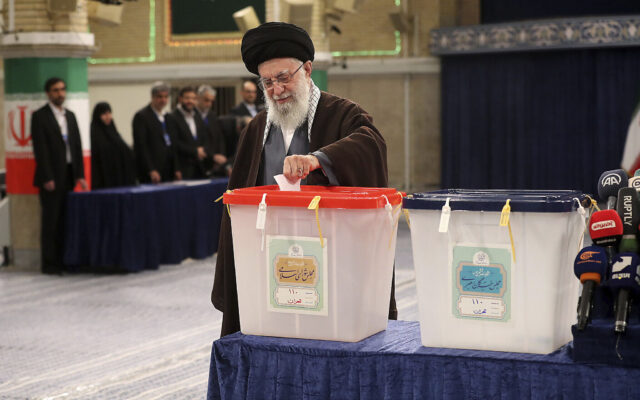
Despite the salience of the war in Ukraine and Israel’s war against Hamas and potentially Hezbollah; Iran’s other proxy, the Houthi, continue to threaten international shipping as well as regional security, including Israel. Thus, it continues to launch missiles at Eilat. Western, especially US efforts to suppress these attacks, though substantial, have proven unavailing, not least because the Houthi’s supply line to Iran remains intact. Logically this suggests that one way, perhaps a more decisive one, is to interdict those supplies and more fully deter Iranian adventurism and Tehran’s strategy of proxy war.
This program follows Ariel Sharon’s well-known insight that terrorism has an address and therefore counter-terrorists should send their mail to that address. In Iran’s case, the advent of a new government reported to want to improve ties with Washington provides the Administration with a unique opportunity. Specifically, the Administration should seize this chance to communicate to the new government in Tehran that if it terminates support for its proxies, the so called Three-H club, Houthis, Hamas, and Hezbollah, Washington will respond accordingly. If, however, these attacks persist, e.g. in the Houthis’ case then, every time the Houthis target a ship in the Red Sea, we will strike not only the Houthis, but also high-value Iranian targets, including targets essential to Iran’s nuclear program.
In this context it does not matter whether Iran aims merely to be a “threshold state” or actually develop nuclear weapons. It has long used the threat of either scenario to threaten and blackmail American allies in the Middle East, not just Israel, and to extend deterrence to its terrorist proxies. The current wars in Gaza and the north of Israel, plus the threats in the Red Sea, illustrate the costs of our forbearance and failure to deter Iran. The direct approach restores control over escalation processes here by imposing severe costs on Iran should it wish to continue its long-held strategy of using proxies in gray-zone attacks to strike both at Israel and the United States not to mention at international order in general.
This approach also raises the costs for Iran’s backers, Russia and China. Not only is Iran involved in weapons transfers with both states, but it may also be getting GPS spoofing technology from them that is then used to target ships in the Red Sea and Persian Gulf. Certainly, the Houthis, obviously with Iranian foreknowledge, have made a deal with both Russia and China to exempt their ships from attack thus linking those two powers to the sponsorship of international maritime terrorism and an attack on international freedom of navigation. So, clearly Iranian proxy wars are tied to Russo-Chinese ambitions on the global stage.
Therefore, our efforts and those of our allies to restore deterrence and regain control should not only reduce the threats to the carrier strike group that had been led by the USS Eisenhower in the Red Sea and will be followed by the USS Theodore Roosevelt this month but allow us to use highly lethal precision drones rather than expensive missiles wherever possible. Likewise, this cost-imposing strategy directed at Tehran and its great power allies could change their risk calculus here and with regard to Israel. Since it is now clear that Hamas and Hezbollah, not Israel, are the real obstacles to peace, U.S. interests and values dictate full support for Israel against the, another decision that would shake up Iranian calculations.
Tehran’s proxies are terrorists, not freedom fighters. And besides Jews, they are willing to kill thousands of their own people to satisfy their leaders’ fanaticism and blood lust. Moreover, like the Serbian terrorists who ignited World War I, not without contacts with Russian intelligence at that time, they seem unperturbed by the fact that they are playing with global firecrackers as long as they gain status. We should have long-since learned Sharon’s lesson, namely that terrorists cannot be partners for peace and feeding the illusion that such a partnership is possible merely fans the flames of larger and more uncontrollable wars.
For these reasons, the need to restore deterrence, regain the initiative regarding escalation control, impose higher costs on international outlaws, weaken the alliance of America’s enemies, and send a decisive message to both the sponsors and purveyors of terrorism. It is necessary to act effectively to counter the proxy war and gray-zone strategy of this axis of autocrats of which Iran is a key linchpin and its proxies the spear of battle. Not only will doing so reduce threats in the Middle East, this program of action will also reinvigorate the foundations of international order, globally.
Stephen Blank, Ph.D., is Senior Fellow, Foreign Policy Research Institute.

